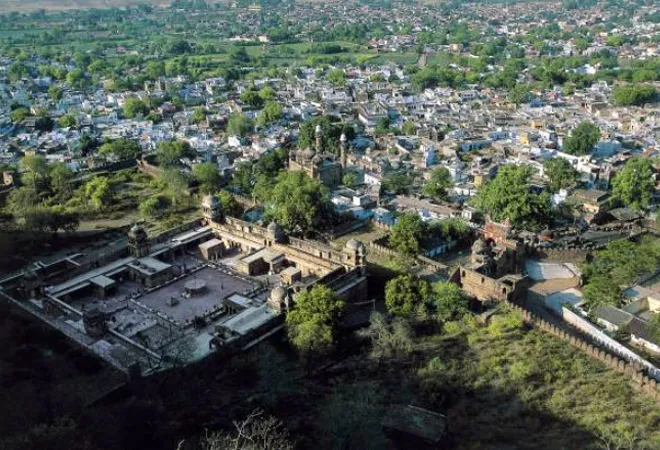
The Madhya Pradesh (MP) government recently approved a policy regarding Resident Welfare Associations (RWA) in the state. These are registered voluntary civic associations representing the interests of the residents of a specific urban neighbourhood and include registered housing societies. The
policy draft was prepared by the Centre of Urban Governance (CUG), a vertical of the Atal Bihari Vajpayee Institute of Good Governance and Policy Analysis, Bhopal (AIGGPA).
This policy defines how RWAs in MP can
supplement and complement the efforts of the urban local bodies (ULBs) in making cities resilient, caring, and competent. As it states, the policy seeks to “deepen democracy” and “make urbanites a partner of inclusive urban development”. The policy further seeks to streamline and standardise the manner of registration of RWAs, their rules, bye-laws, and regulations. It provides a standard management methodology by suggesting a formal redressal mechanism in internal and external disputes.
This policy defines how RWAs in MP can supplement and complement the efforts of the urban local bodies (ULBs) in making cities resilient, caring, and competent. As it states, the policy seeks to “deepen democracy” and “make urbanites a partner of inclusive urban development”.
The policy proposes an effective mechanism, preferably an e-platform, through which an RWA can circulate and disseminate critical information to all its residents. To enable the elements of participative democracy, the policy stipulates that all the resident members of the RWAs, whether an owner or a tenant, shall be allowed to attend the society meetings. However, it would be the owners whose opinion would count for issues concerning property. In issues that impinge on the quality of services, the views of owners and tenants would get equal weightage. It would be incumbent on the RWAs to make information related to bylaws, rules, regulations, events/activities, and minutes of the meetings accessible. A No Objection Certificate (NOC) shall be required from the RWA by the property owner at the time of selling his property. In this regard, an application shall be submitted to the RWA by the property owner. Within 15 days from the date of application, after following due procedure, an RWA shall issue the NOC.
The RWAs are charged with the responsibility of the following functions within their campus:
- The primary collection of solid waste and its management
- Management of drains and drainage
- Maintenance of streetlights
- Maintenance of parks and boundary walls
- Road works including construction, maintenance, and restoration
- General beautification of the campus
- Safety and security of society as well as security guards
- Management of proper parking (reserved/visitors’) within the society
- Other necessary and integral functions of society
It would be incumbent on the RWAs to make information related to bylaws, rules, regulations, events/activities, and minutes of the meetings accessible.
The policy urges the RWAs to encourage the residents to participate in society’s general functioning and governance. RWAs shall also ensure that no encroachment is done in the common areas of the society, and the same is accessible to every member of the society. RWAs shall get financial support from the state government under relevant schemes as per needs and necessity. RWAs shall register, maintain, and keep the records of the domestic workers, sweepers, security guards, plumbers, electricians, and gardeners working within the RWAs. RWAs shall make efforts to develop a system of e-voting for RWA elections and decision-making in society. The office bearers will have a term of two years, after which a new group of members will take over society management.
The most significant power proposed to be handed over to the RWAs is that for development works such as roads, streetlights, and footpaths in the RWAs and it would be the RWAs who would have the power to select the agency for the concerned work. Equally significant is the provision that the ULBs shall involve RWAs in preparing the Local Area Plan (LAP). The RWAs shall be engaged in the master plan preparation by the Town & Country Planning Department. Here, the policy intends to give space beyond that afforded by any current piece of municipal legislation. Currently, under planning statutes in the country, plans prepared by ULBs are published as a draft to which those concerned could raise objections or make suggestions. Ab initio citizen consultations are for the first time sought to be provided through this policy.
The most significant power proposed to be handed over to the RWAs is that for development works such as roads, streetlights, and footpaths in the RWAs and it would be the RWAs who would have the power to select the agency for the concerned work.
The issue of citizen’s direct partnership in the affairs of the city in which they live was sidelined by the Constitution (74
th ) Amendment Act. The focus of that amendment was to empower the ULBs. It was brought to life much later as part of the Jawaharlal Nehru National Urban Renewal Mission (JNNURM) reform agenda in 2005, by which the Government of India (GoI) advised the states to consider enactment of the JNNURM’s
Model Nagar Raj Bill.
The key organisational entity to emerge out of the Nagar Raj Bill was the Area Sabha and was defined as “the body of all the persons registered in the electoral rolls pertaining to every polling booth in the Area, in a Municipality”. The avowed intention was to “institutionalise citizens’ participation in municipal functions”. This went beyond what the 74
th Constitutional Amendment Act sought to achieve. In trying to get the states to implement this bill, the GoI made the enactment of this community participation law a precondition for other stipulated reforms. It tied the disbursement of JNNURM funds to the adoption of this bill.
Despite the effort of the GoI, the states chose to skillfully disregard the provisions of the Nagar Raj Bill. The Energy and Resources Institute (TERI) documented this in 2010 in a report on Area Sabhas prepared for the Ministry of Urban Development. TERI reported that while 12 states enacted a community participation law, they diverged from the guidelines of the Nagar Raj Bill and effectually side-stepped citizen involvement in the decision-making process of ULBs. It must, however, be said that the bill had its weaknesses. A genuine concern of the states was that the Nagar Raj Bill appeared to drown the ULB in organisational overload.
TERI reported that while 12 states enacted a community participation law, they diverged from the guidelines of the Nagar Raj Bill and effectually side-stepped citizen involvement in the decision-making process of ULBs.
Furthermore, the advisory nature of the powers given to the Area Sabha was a feeble step towards citizen empowerment. According to the bill, suggestions made by the Area Sabha would not be binding on the ward committees. The bill stipulated an elaborate electoral exercise to get Area Sabhas in place. If, at the end of such an exercise, the suggestions of the Area Sabhas could be disregarded as they were merely suggestive, it was decidedly a very nebulous kind of civic engagement that was sought to be enabled. The effort, therefore, clearly had to be an attempt to allow substantive participation of the citizens where the voice of the citizens could prevail and generally could not be ignored.
The RWA policy of the MP government wishes to traverse further than what the Nagar Raj Bill proposed. It is true that several Western democratic countries have taken citizens’ empowerment in the affairs of their cities much further than what the MP policy seeks. The MP government ought to be given the credit that it proposes shifting the goal post much more towards the citizens than hitherto attempted in certain significant areas. While the policy has been approved by the state government, which is very laudable, the real test would be in giving the policy statutory teeth. We have seen how states pulled their feet back in the case of the Nagar Raj Bill.
In some cases, even enacted legislation was virtually put on hold through the route of non-notification of the date that would put the law in motion. The approval of the policy by the MP government shows admirable governmental intent. It is the enactment of the law and its actual implementation that would reveal true resolve.
The views expressed above belong to the author(s). ORF research and analyses now available on Telegram! Click here to access our curated content — blogs, longforms and interviews.



 The Madhya Pradesh (MP) government recently approved a policy regarding Resident Welfare Associations (RWA) in the state. These are registered voluntary civic associations representing the interests of the residents of a specific urban neighbourhood and include registered housing societies. The
The Madhya Pradesh (MP) government recently approved a policy regarding Resident Welfare Associations (RWA) in the state. These are registered voluntary civic associations representing the interests of the residents of a specific urban neighbourhood and include registered housing societies. The  PREV
PREV


